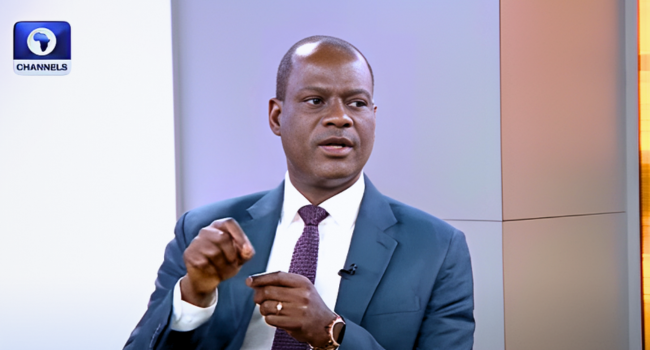MTN Nigeria pays over N200 billion in Value Added Tax (VAT) every month, according to Taiwo Oyedele, the Chairman of the Presidential Fiscal Policy and Tax Reforms Committee.
This staggering amount makes the telecom giant the largest contributor to Nigeria’s VAT revenue pool.
Oyedele revealed this during a recent Channels Television Town Hall on Tax Reforms, where he served as a panellist.
He used the platform to shed light on how VAT is currently distributed and why reforms are necessary to address the imbalance.
“MTN is the largest contributor to VAT in Nigeria,” Oyedele stated.
“They pay VAT of over N200 billion every month. The gap between them and the number two contributor is huge.”
However, Oyedele pointed out that the current system channels all of MTN’s VAT payments to Lagos State because the company’s headquarters is located there.
“This happens even though calls and services generating the revenue are consumed across the country,” he added.
Calls made in states like Kano, Ekiti, Kebbi, or the Federal Capital Territory do not impact those states’ VAT allocation under the existing rules.
This unfair system is one of the key issues the proposed tax reform bill seeks to address.
The tax reform committee has suggested a new framework that distributes VAT revenue based on consumption rather than the location of corporate headquarters.
Under the current model, Lagos State retains the entirety of MTN’s monthly VAT payments.
If the proposed reforms are implemented, Lagos’ share would drop to around 20 per cent.
The remaining 80 per cent would be shared among other states where MTN’s services are actually consumed.
“This adjustment ensures that states where the VAT is generated get their fair share,” Oyedele explained.
“When you analyse the data, Lagos State’s share reduces slightly, but every other state gains.”
Oyedele illustrated the potential redistribution of MTN’s VAT payments, showing how the reforms could benefit states nationwide.
The reforms aim to fix longstanding issues in Nigeria’s tax policies.
These include inefficiencies in revenue allocation, unfair advantages to certain states, and overall inequity in the system.
Oyedele emphasised that the current VAT system disproportionately benefits Lagos State, despite services being consumed across the country.
He argued that the reforms are not meant to punish Lagos but to create fairness for all states.
“If you’re doing the wrong thing, how can Lagos State disagree with us when we propose to fix it?” Oyedele asked.
According to him, the reforms will not only ensure fairness but also promote economic development in states that previously received little to no VAT allocation.
The proposed tax reform bill has sparked heated debates across the country.
Critics claim the reforms could harm Lagos State, which heavily relies on VAT revenues to fund its budget.
Others argue that the reforms are overdue and will help reduce regional inequalities in Nigeria.
Oyedele dismissed fears that the changes are targeted at Lagos, calling such claims unfounded.
“The current system is flawed and unfair,” he said.
“We are simply trying to ensure that every state gets what it rightfully deserves.”

